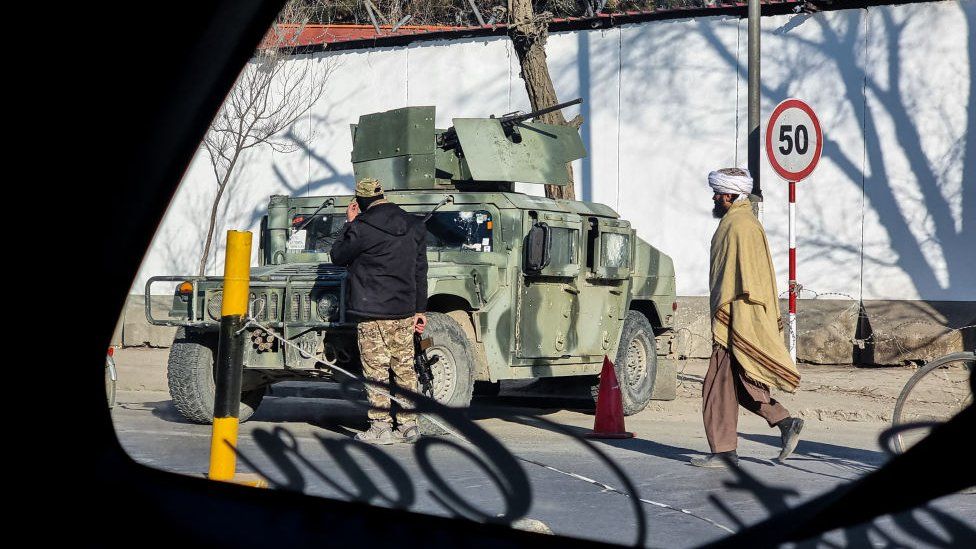
Women's freedoms have been further curtailed in Afghanistan, after the Taliban barred them from working for non-governmental organisations (NGOs).
The Islamist rulers said female NGO employees had been breaking Sharia law by failing to wear the hijab.
It comes days after female students were banned from universities - the latest restriction on their education since the Taliban regained power.
Women prevented from going to work told the BBC of their fear and helplessness.
One said she was the main earner in her household, and asked: "If I cannot go to my job, who can support my family?"
Another breadwinner insisted that she had complied with the Taliban's strict female dress code. "This news is shocking," she said. "I am confused what will happen to my life."
A third woman questioned the Taliban's "Islamic morals", saying she would now struggle to pay her bills and feed her children.
"The world is watching us and doing nothing," said another female interviewee. The BBC is not publishing the women's names in order to protect them.
Saturday's edict was announced in a letter from the Ministry of Economy to both national and international NGOs. A Taliban spokesman confirmed that the ruling applied until further notice.
However, it was not immediately clear whether this would affect UN bodies, which have a large presence carrying out relief and development work in the country.
The letter threatened to cancel the license of any organisation that did not swiftly comply.
If NGOs are now only allowed the employ men, it appears Afghan women will be unable to receive aid directly. Separate rules prevent men from working with women.
It is feared this could worsen widespread issues such as infant mortality in a country where foreign funding for healthcare has now dried up.
The South Asian branch of Amnesty International described the ban as "yet another deplorable attempt to erase women from the political, social and economic spaces" of Afghanistan.
One imam - whose identity is again being protected by the BBC - said the Taliban was "not committed to any Islamic value".
He explained: "Islam has not said that men can educate and women cannot. Or men can work and women cannot. We are confused about this decision."
A ban on women attending Afghan universities earlier this week met similar condemnation. It triggered protests - including in Herat on Saturday - which have been rapidly suppressed.
Since seizing back control of the country last year, the Taliban has steadily restricted women's rights - despite promising its rule would be softer than the regime seen in the 1990s.
Secondary schools for girls remain closed in most provinces. Women have also been prevented from entering parks and gyms, among other public places.
Additional reporting by Aalia Farzan.
This video can not be played
To play this video you need to enable JavaScript in your browser.
https://news.google.com/__i/rss/rd/articles/CBMiLGh0dHBzOi8vd3d3LmJiYy5jb20vbmV3cy93b3JsZC1hc2lhLTY0MDg2Njgy0gEwaHR0cHM6Ly93d3cuYmJjLmNvbS9uZXdzL3dvcmxkLWFzaWEtNjQwODY2ODIuYW1w?oc=5
2022-12-24 16:19:54Z
1708315750
Tidak ada komentar:
Posting Komentar